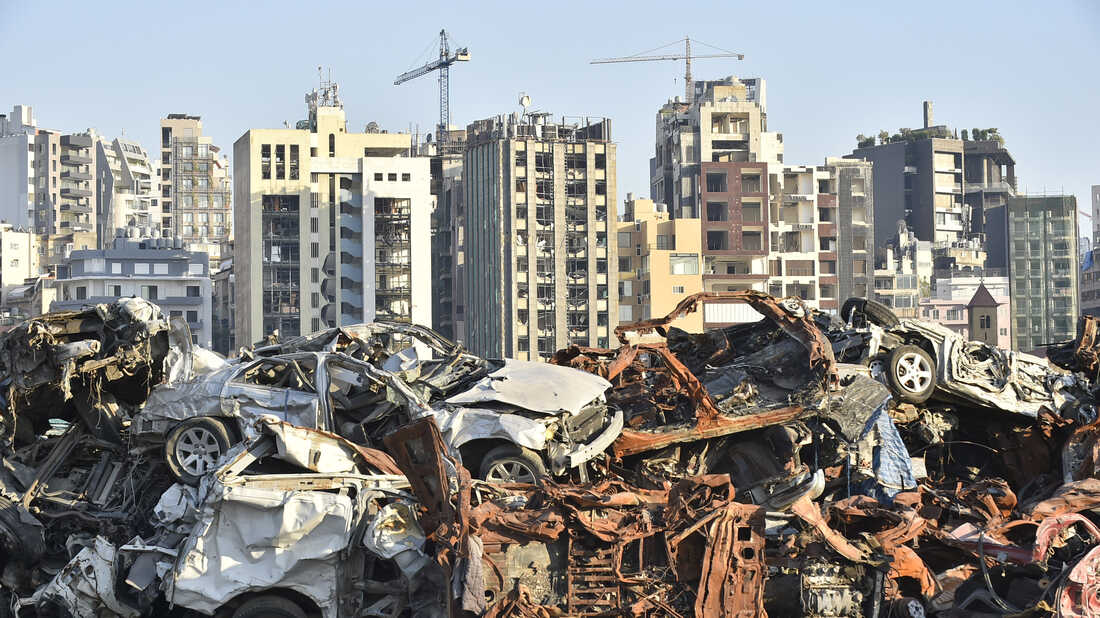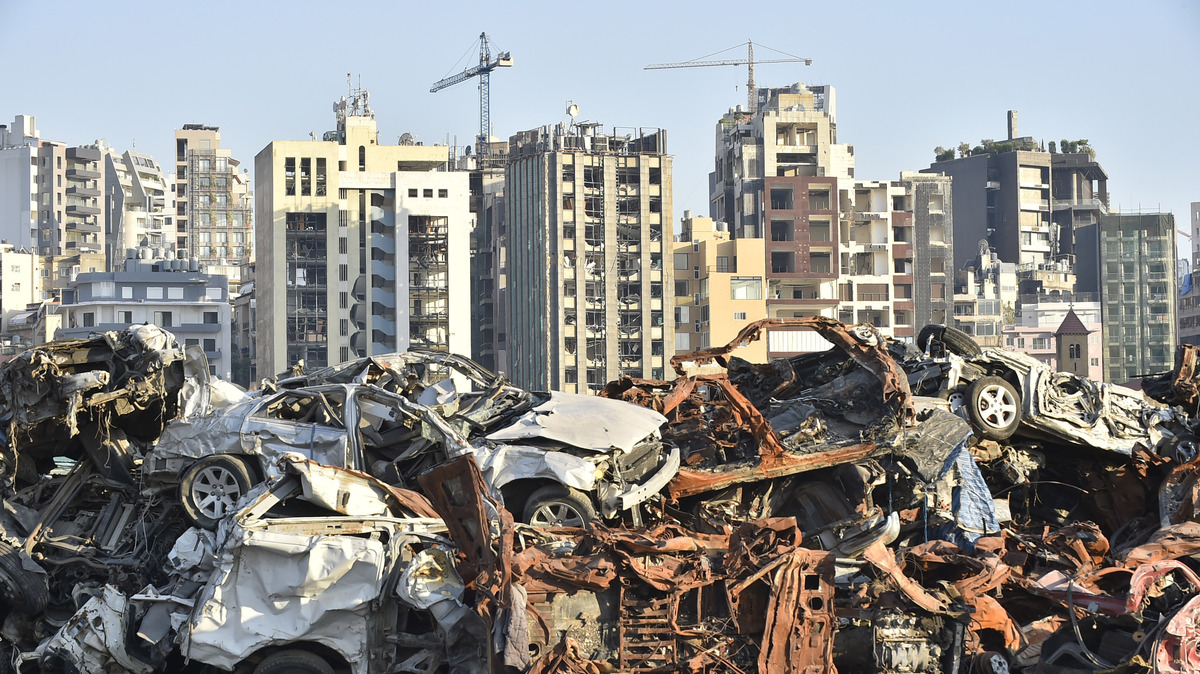
A view of devastated Beirut port one year after a massive explosion that killed more than 200 people and cost billions in damage. Hussam Shbaro/Anadolu Agency via Getty Images hide caption

A view of devastated Beirut port one year after a massive explosion that killed more than 200 people and cost billions in damage.
Hussam Shbaro/Anadolu Agency via Getty ImagesIt's been exactly one year since a massive explosion in Beirut's port killed over 200 people, injured thousands and caused billions of dollars in damage.
That disaster added to Lebanon's ongoing economic crisis. Banks have frozen accounts, basic essentials are scarce and donor countries are hesitant to help a government rampant with corruption.
The survivors of the blast, and the families of the victims, are still waiting for justice. NPR's Ruth Sherlock tells the story of one woman who lost her sister and has spent the last year looking for answers.
Email us at
This episode was produced by Lee Hale and Jonaki Mehta. It was edited by Fatma Tanis with help from Larry Kaplow. Our executive producer is Cara Tallo.

 Live Radio
Live Radio